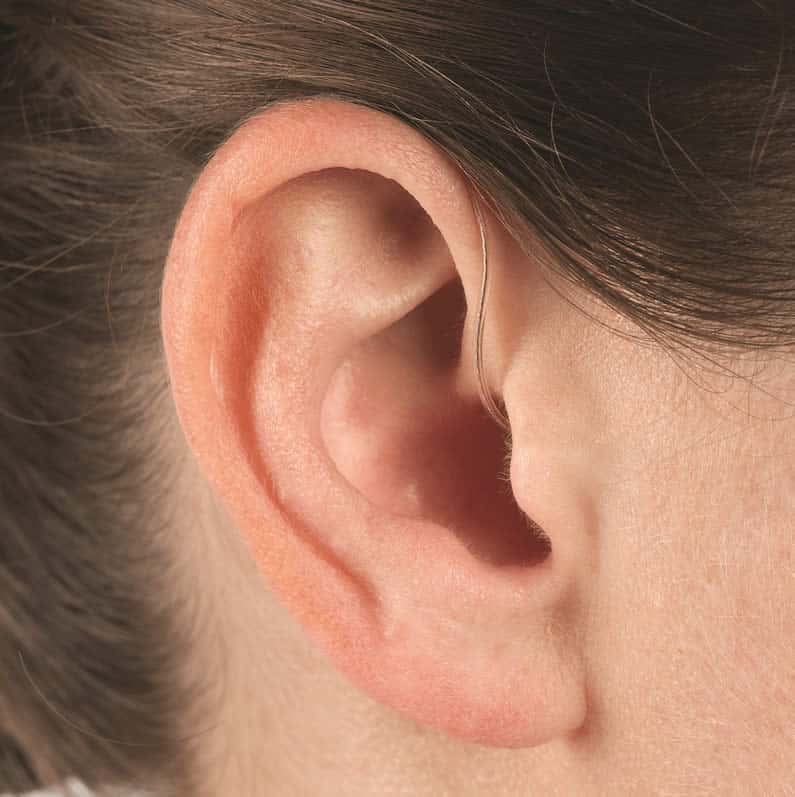How To Talk About Hearing Loss

TALKING TO A LOVED ONE ABOUT HEARING LOSS
Hearing loss can be a very difficult topic to discuss when it is affecting someone you love. Many people experiencing hearing loss are in denial of the problem and can become defensive or angry if you try and approach them about it. This might be for a number of reasons. Often, these reasons are very personal.
Below are some general tips on how to talk to a loved one about hearing loss, as well as some talking points on the most common reasons people give for denying hearing loss. We have some materials that you can download, which might be useful for getting the conversation started.
If you want to learn more about hearing loss, check out our resources:
General Tips
Firstly, remember you are talking to someone about hearing loss because you think they may have a hearing loss. Make sure you make the conversation as easy to hear as possible!
Do this by:
- Ensuring you have the person’s attention before you start speaking.
- Make eye contact with your loved one. If you are making eye contact then you are facing them and they can see your mouth. Both of these things make it easier for people with a hearing loss to understand speech.
- Try and keep your hands away from your mouth when you are speaking to your loved one.
- Speak normally, annunciate clearly and do not speak too loudly or quickly. Don’t talk down to them.
- Use appropriate facial expressions and body language.
- If they do not understand something you say then try rewording your sentence. Some words are easier to hear or lip-read than others.
- Try and have the conversation in a quiet place, away from competing noises or distractions. Noises that interfere with hearing include music, TVs, air conditioners or even a fridge’s humming.
Try talking to your loved one about their general attitudes to hearing loss. This might give you a good idea of why they are reluctant to treat the problem, without them having to admit they have a hearing loss.
Using Hearing and Audiology’s Hearing Loss Education Brochure as a starting point can be helpful. Once you understand why someone is reluctant to get help you can use the information on common reasons below to have an informed discussion with them.
Be as patient and non-judgemental as possible and let them know you are approaching them because you care. Give them an opportunity to speak and listen closely to their answers. Sometimes just being able to open up about the issue can be enough for someone to accept that they need help.
Give them positive encouragement to see a hearing professional. Many people also appreciate it if you offer to go with them to their appointment.
If someone won’t talk to you about how their hearing loss is affecting them, it might be worth trying to discuss how their hearing loss is affecting you. Many people close to those with a hearing loss also experience frustration and anger at having to repeat themselves constantly. If you choose to speak with someone about this, remember they are likely to feel just as frustrated as you, and perhaps even a bit embarrassed. Don’t blame your loved one for the situation; just let them know you’re in it together. Getting help can really improve personal relationships.
If someone is still unwilling to discuss the problem don’t push them. Let them know you are happy to talk about hearing loss when they are ready. It might be helpful to give them some information on hearing loss to look over in their own time. You can find a print version of our Hearing Loss Education Brochure here.
If your loved one is willing, you can complete our hearing loss screening tool together to see if they have any of the common signs of hearing loss.
Common Reasons for Denying Hearing Loss
Fear of Aging

Some people feel that admitting they have a hearing loss means they are admitting they are old. In fact hearing loss can occur at any age. In some cases, hearing loss is a part of getting older, in other cases the hearing loss has been caused by something else altogether, something that might even be easily resolved.
But even if someone’s hearing loss has been caused by age this can actually be seen as a good thing. People are living longer than ever before thanks to medical advances which is great, and something we think should be celebrated. A part of living longer is that things in our bodies will start to show wear and tear. Hearing is especially susceptible to age as the ear is very delicate.
This is why medical advances in recent years have not just been limited to extending our lives; there have also been great advances in improving people’s quality of life, especially as we get older.
One of the most effective ways we have of improving people’s quality of life is actually treating hearing loss. Hearing loss can cause problems in personal relationships, it can make people stop socialising and even exercising. It is linked to depression, anxiety, forced early retirements, higher rates of hospitalisation and even dementia.
Hearing aids are very effective tools in combatting all of these problems. Almost all hearing aid users report a better quality of life once they are fitted. In fact, studies show that people who ignore their hearing are more likely to have “age-related health problems” than those who seek help.
Cost of Treatments
Hearing loss treatments are more affordable than you might think. Australian Pensioners and Veterans are eligible for free hearing services, including free hearing aids, and most private health funds also have rebates for hearing aids. Please see our Hearing Loss FAQs page for more details.
Hearing aids are also very good value for money. They improve your quality of life and reduce your risk of developing one of the complications of hearing loss. They also help people stay in the workforce longer. Untreated hearing loss costs the Australian economy over $20 billion a year. This means that by getting help, you can actually save yourself a lot of money in the future.
Unaware of the Extent of their Hearing Loss
Hearing loss normally occurs gradually. People with hearing loss wait an average of 10 years before seeking help. As hearing loss happens gradually people are able to adapt to their hearing loss over time. This can mean they are unaware of how much their hearing loss is affecting them and those around them.
Filling in our hearing loss screening tool together can help someone realise how much of an impact their hearing loss is having on their life. It is also important to realise that while the brain can adapt to hearing loss, this puts a lot of extra strain on it, leading to some serious complications. Even if someone thinks they are coping, seeking help could vastly improve their quality of life.
Appearance of Hearing Aids

Many people are concerned about how they look wearing hearing aids. In the past, hearing aids were much bigger and more visible. Modern technology has come a long way though.
Today, hearing aids are smaller and more discrete than ever. There are even hearing aids that sit inside the ear and are completely invisible. The hearing aid we recommend to your loved one will depend on their specific needs, but we understand appearance is important and can prioritise discretion if that is essential to you.
Extra Information and Materials
Our clinicians are all highly trained hearing loss experts. We know talking to people about hearing loss can be hard. We know hearing loss is a personal experience and affects everyone differently. We recommend coming with your loved one to their appointment for support and also to provide honest feedback.
We will take the time to discuss your concerns with you. Having a hearing test is the first step in diagnosing and addressing hearing loss. We hope this information helps you in taking that first step.
Please download a copy of our hearing loss brochure to be viewed on a computer here, or to be printed here.
Please make an appointment to see one of our Perth or Geraldton audiologists by calling (08) 9388 8003 or book online.

